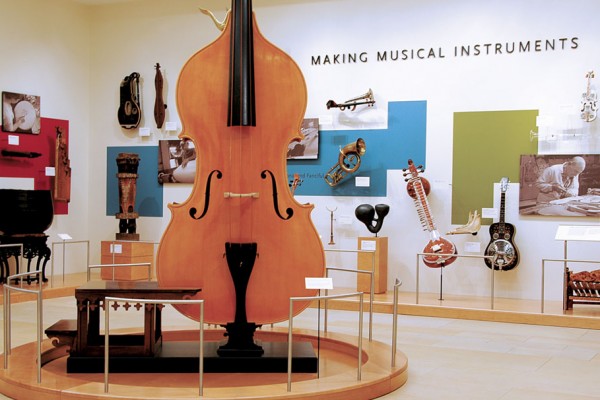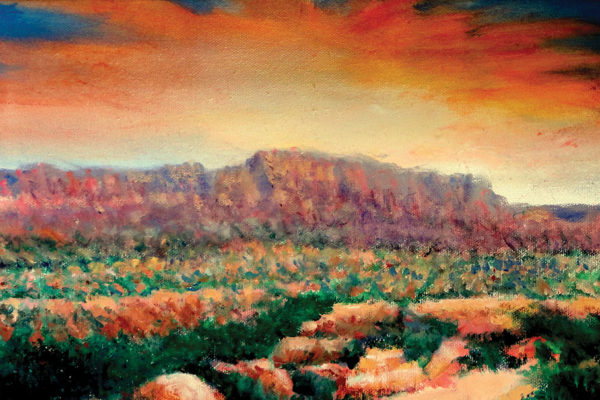Continued (page 5 of 13)
Maynard, as someone who’s famously private, was it hard for you to be the subject of a documentary?
MJK: I’ve had very little experience with films in the past. Pretty much – it was hard. What doesn’t come across too much in the trailer is the comedic element. There’s a lot of very tongue and cheek comedy. It’s very fun.
EG: The majority of the humor flows more from Maynard’s world from my own. Some of it is esoteric from a certain group of people associated with Tool and Maynard’s world. There [are] some pretty solid wine elements, too, although it’s somewhat secondary. The film appeals to a younger crowd, which is fine. I’m excited about the fact that it’s not a stuffy wine movie. It’s a catch-22 for me.
What do you think will surprise viewers, particularly wine lovers, most after they see this film?
MJK: If they are a wine lover from our area, they already know [about what we’re doing]. If they are from somewhere else, I’m assuming they’ll be very surprised at the endorsements we get as far as Arizona’s potential.
Do you think people in other parts of the country are surprised that we’re growing grapes in Arizona?
MJK: Yeah, but I don’t think it’s a shocking surprise. It’s just never come up. There’s a lot of noise out there, a lot of information to take in these days, so it’s just not on people’s radar.
What should audiences know about Blood Into Wine?
MJK: So many people are going to expect this informative documentary that tells them all about how to make wine. That would be kind of boring. That’s not really our style. It’s definitely going to have some fun twists. It will be informative and entertaining.
Maynard, what can we expect from the film’s score?
MJK: There [are] a few tracks here and there with Puscifer. I had nothing to do with anything else.
You seem completely enmeshed in life in northern Arizona, Maynard: a produce market in Cornville and a Puscifer clothing store and wine tasting room in Jerome. Do you feel like you’re a part of our community even though you prefer to keep a low profile?
MJK: We’re building the market. We have the produce but not the market yet. We’ve been selling it out of my tasting room in Jerome. What Eric and I are doing in the community ingrains us in it.
Maynard, I know you’re on tour right now. What are you listening to on your iPod?
MJK: [Laughs] Tomorrow’s set. We change up the set quite a bit, so we’re always having to relearn what we’re going to do tomorrow.
What are you listening to, Eric?
EG: My musical interests are diverse. I listen to a bunch of people no one has heard of. Keith Greeninger and City Folk and [musicians] from the Bay Area. I’m also enjoying the Black Rebel Motorcycle Club. As of late, I’ve also been digging into 80’s metal like Iron Maiden and Judas Priest. Just yesterday, I was listening to a bunch of Puscifer.
Lastly, what type of wine will you drink when you watch the final cut of the film?
MJK: Hmmm…Oak Creek Pale Ale [laughs].
EG: [Laughs] It depends on where I see it. At home or with Maynard, we’ll be drinking his Judith Cab [Nagual del Judith] and my Page Springs [Cellars] Landscape.
Richard Schiff: Another Harvest Moon and Poliwood
Emmy award-winning actor Richard Schiff stars in two films at this year’s Sedona International Film Festival: the end-of-life drama Another Harvest Moon (produced by Chad Taylor, the lead singer of rock band Live, and starring Ernest Borgnine, Anne Meara, Doris Roberts and Cybill Shepherd) and the documentary PoliWood (see interview with Tim Daly for more details). Richard starred in one of our favorite 2007 films, Martian Child, but he’s best known for his role as Toby Ziegler, the White House communications director, on the television drama The West Wing. Richard called us from the Starz Denver Film Festival to talk shop.
Sedona Monthly: This year, you’re in two movies being shown at the Sedona International Film Festival, Another Harvest Moon and PoliWood. Let’s talk about Another Harvest Moon first. Our film festival has been very sensitive about bringing in movies that deal with aging. Do you think mainstream Hollywood would ever make a film like Another Harvest Moon?
Richard Schiff: Well, they certainly did years ago with On Golden Pond and I Never Sang for my Father, but they are few and far between, aren’t they? It’s understandable. You’re dealing with the end of life, and it’s an awkward and difficult subject. We live in a culture that hides death away from every day life. As I think about it, you don’t see people die. They are put away in hospitals. My wife’s brother recently died, but the whole family was with him in the house. It was important for his kids to go through that with him. I was struck by the fact that that’s never happened before in my life. My parents wouldn’t even let me see my grandfather in his casket. I resent it to this day. This movie embraces the awkwardness of [death] and this issue of whether or not someone has the right to want to die.



